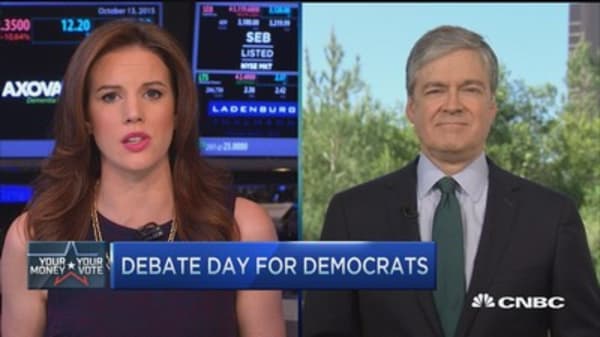Content is likely to prove the least interesting aspect of this debate. The Democratic verdict on the Obama presidency is clear: He has been an enormously successful leader, restructuring America's health care, saving the economy, reducing our military footprint and engaging long-standing adversaries. His only shortcoming has been his lack of willingness to fight fully for progressive ideals. Expect all five candidates to share this view, more or less. Expect each one to find areas in which they can improve upon Obama's fine work — at least in the minds of Democratic partisans likely to vote in primaries. Expect them to oppose Obama's last-minute foray into free trade. Expect them to express disappointment in his failure to promote the draconian political agenda that climate change demands. Expect them to promise higher taxes and greater distribution. Expect them to promise greater cash payments and fewer training or employment opportunities to Americans in the three lowest income quintiles.
In short, expect to see the slippery slope of today's Democratic Party in action. The Obama administration has been far to the left of the Clinton administration, but not far enough for the Democratic base. Expect all five candidates to promise further leftward drift.
Commentary by Bruce Abramson, Ph.D., J.D. and Jeff Ballabon. Abramson is a senior fellow at the London Center for Policy Research, director of policy at the Iron Dome Alliance and a senior expert at Keystone Strategy. Ballabon is CEO of B2 Strategic where he advises and represents corporate and political clients on interacting with the government and media and guides foreign companies entering U.S. markets. He previously headed the communications and public policy departments of major media corporations including CBS News, Primedia and Court TV. Follow them on Twitter @bdabramson and @ballabon.










